The best BBQ Delivery Boxes in the UK from small sustainable British Farms
Written in collaboration with Organico
If organic were a sport, it would be women’s football.
They are both powered by a few visionary people, who in the face of all criticism and all the obstacles placed in their way, continue to believe and fight and push forward.
Outside of those people, few really ‘get’ it.
No one cares about women’s football, they said.
Organic isn’t for me, they say.
No one watches it, they said.
No one buys it, they say.
And yet…
Games were sold-out in stadiums across the UK and people asked: “Why aren’t the stadiums bigger?”
When they featured the European final on prime time TV this summer, a record-breaking 17.4 million people watched the game.
That’s the point. When we gave the UK public a genuine choice, when we removed the artificial barriers, the public proved there was, in fact, huge demand to watch women’s football and flocked to the games.
Organic hasn’t had its Wembley moment – yet.
It currently makes up less than 2% of all food and drink sold in the UK market.
But, is this because the public doesn’t want organic food? Or because of the (artificial) barriers that are stopping us from supporting organic?
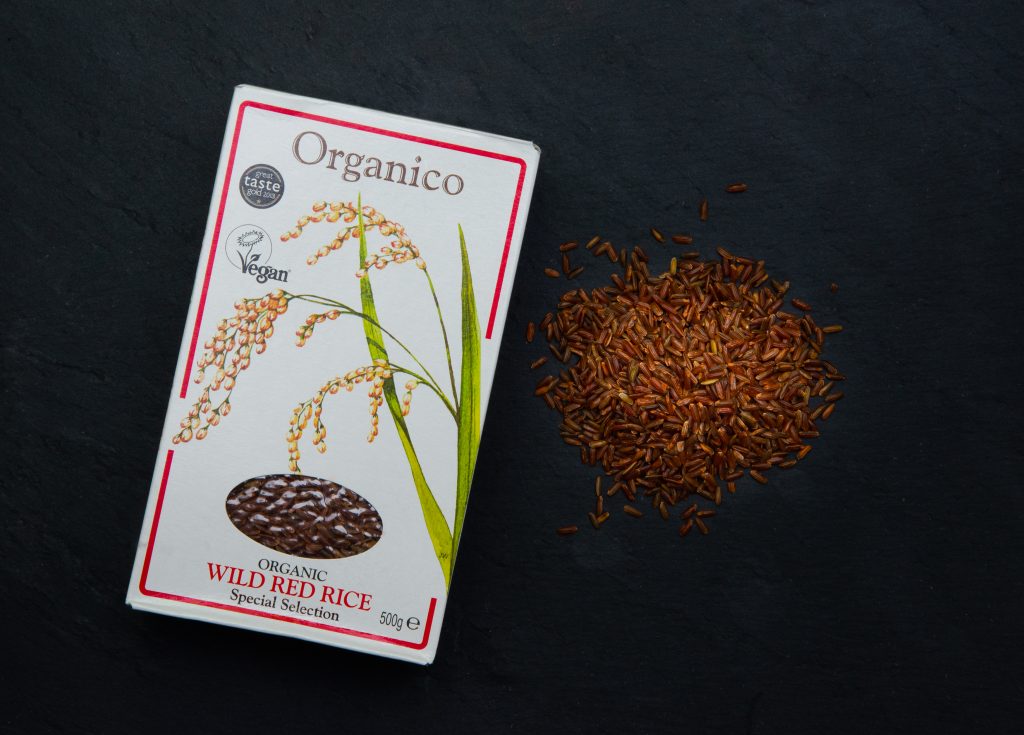
What is organic food? The benefits of organic
The answer to ‘what is organic food?’ is both its strength and its weakness.
Yes, it’s farming without harmful chemicals made from fossil fuels that devastate biodiversity and end up as residue in food. But, organic also considers how we grow our food in relation to the wider ecosystem of our planet. It considers the whole balance of how humans coexist with nature.
This means organic has a wealth of benefits:
Organic is good for insects. It’s good for water. It’s good for you because it’s largely (but not completely) farmed without synthetic chemicals…
Plus, it’s good for carbon emissions. This is because organic farming helps to take carbon out of the atmosphere and store it in the soil, where it is a useful building block for life…
Though, sometimes organic farming isn’t as good for carbon metrics. This is because animals in organic systems live longer and with more space and therefore they have bigger carbon footprints…
But, in balance, this is better for the animals and for meat eaters because organic systems are higher welfare and don’t allow routine antibiotics (which is good news in terms of maintaining their effectiveness for humans). Plus, most agroecological and regenerative farming experts believe animals are an essential part of farming in tune with nature.
Working with nature becomes even more important as the effects of climate change become more prominent – as they have this summer with long periods of drought followed by flash flooding – because it means crops and farms are more resilient.
Also, let us not forget organic is a natural system not just on the farm, but in the factories during the production process as well. Many artificial processes and additives are banned – sweeteners, colours, preservatives but most of all the flavour substitutes and bulking agents routinely used in mass manufacture. There’s a vast list of lab made nutritionally empty food cheapening tricks which are simply not allowed in organic foods…
Are you still with me?
Not really?
Exactly.
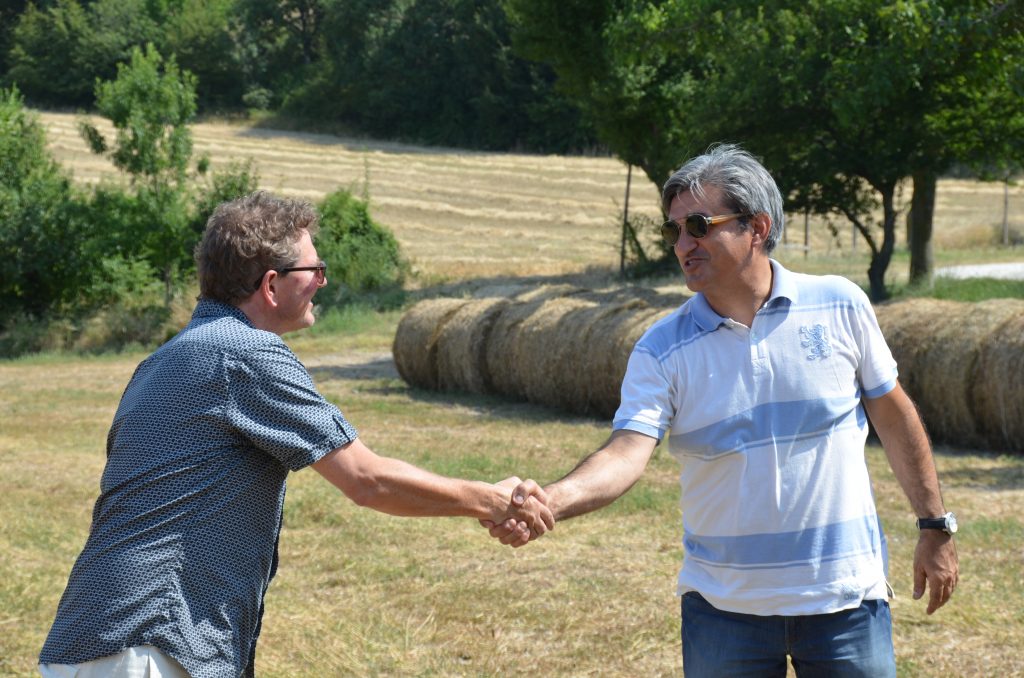
What is organic food? The organic conversation
Understanding organic requires time, nuance and an understanding of farming and food systems. It’s a tall order that our fast-paced, social-media-driven and increasingly-urban world does not make easy.
“Organic is a large part of the solution to the unprecedented multiple attacks on natural systems and yet it’s almost a dirty word. Even papers like The Guardian publish articles criticising organic and then in the same month have dozens of articles about biodiversity loss, the dangers of mono-cropping or deforestation – all problems to which organic provides an answer. How can this Jekyll and Hyde situation not be noticed?,” asks Charles Redfern, founder of Organico and Fish4Ever.
These two food companies only sell food produced from regenerative, organic and sustainable practices. The brands support hundreds of family farms, co-operatives and local fishers who are standing up – as much as they can – to the huge weight of the industrial food system.
“We’ve faced months of drought in the UK and Europe. We’re still in the midst of a pandemic,” Redfern continues.
“Why are we talking about ‘climate smart’ and not mentioning organic? And why are we talking about human health and not mentioning organic? Why are we talking about ‘low impact’, biodiversity, regeneration, soil health – and not mentioning organic?”
Shop affordable organic food brands:
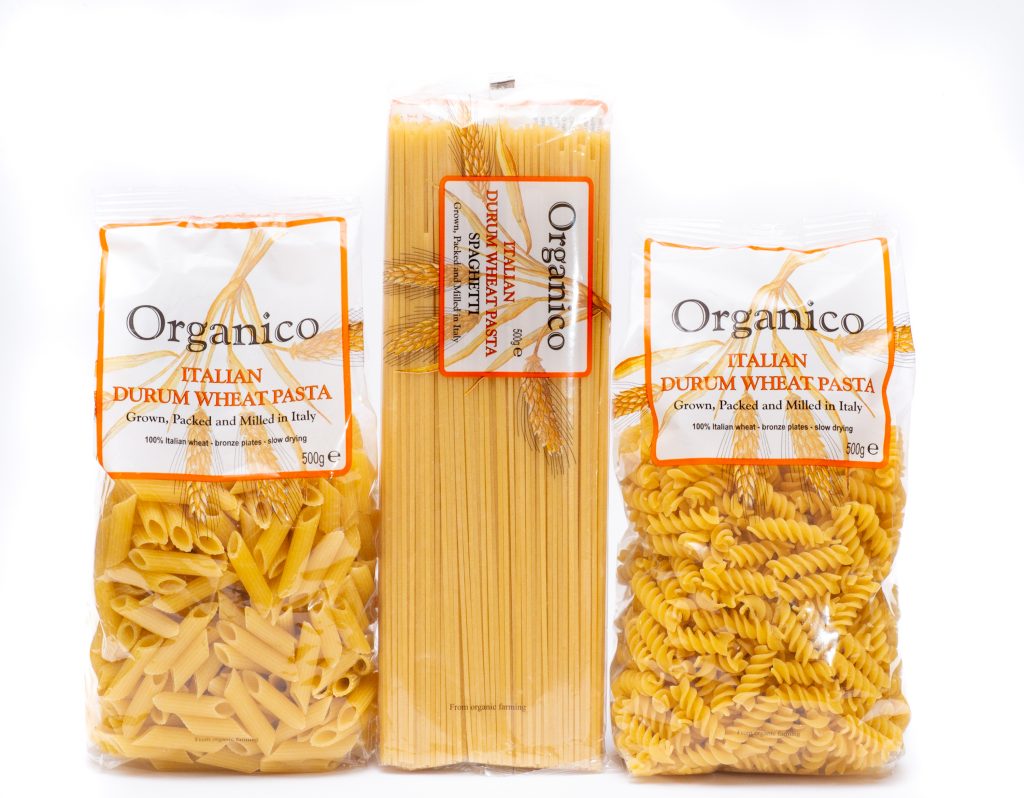
Organico
Pasta, rice, and other organic cupboard staples.
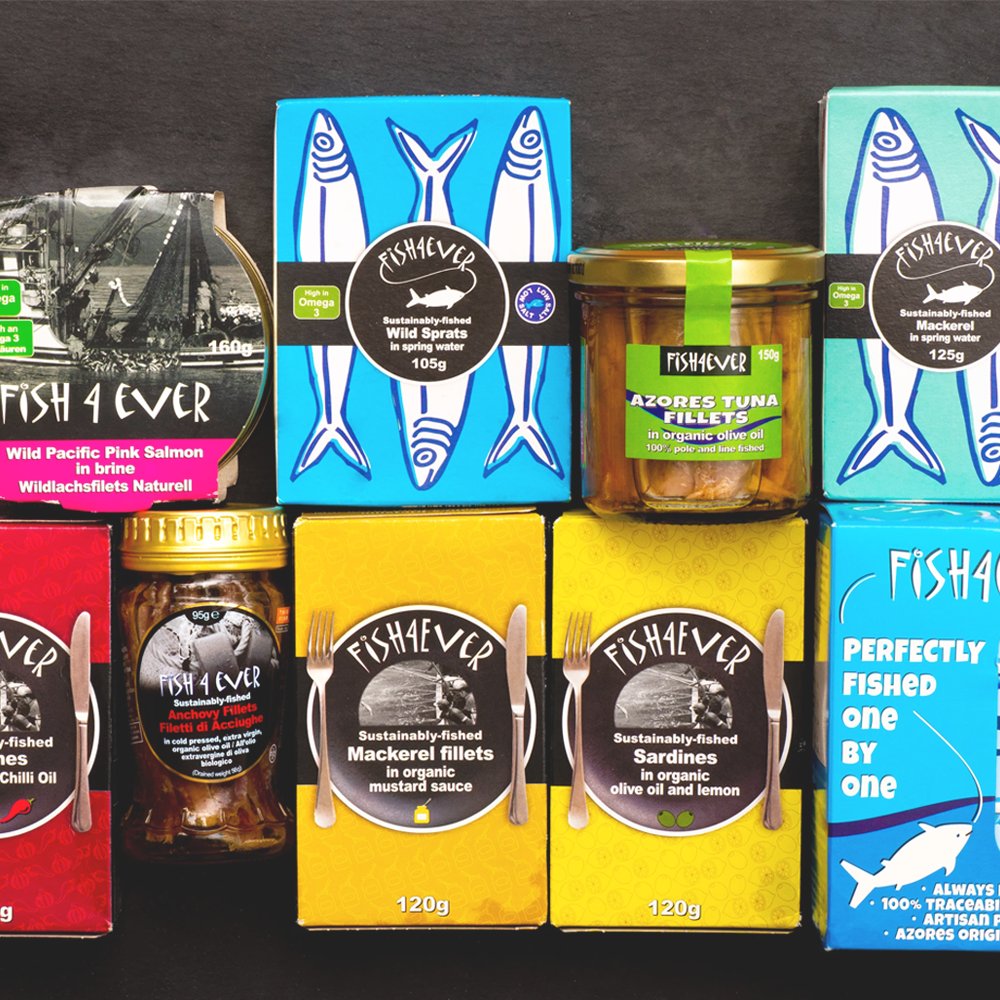
Fish4Ever
Sustainable canned fish you can trust.
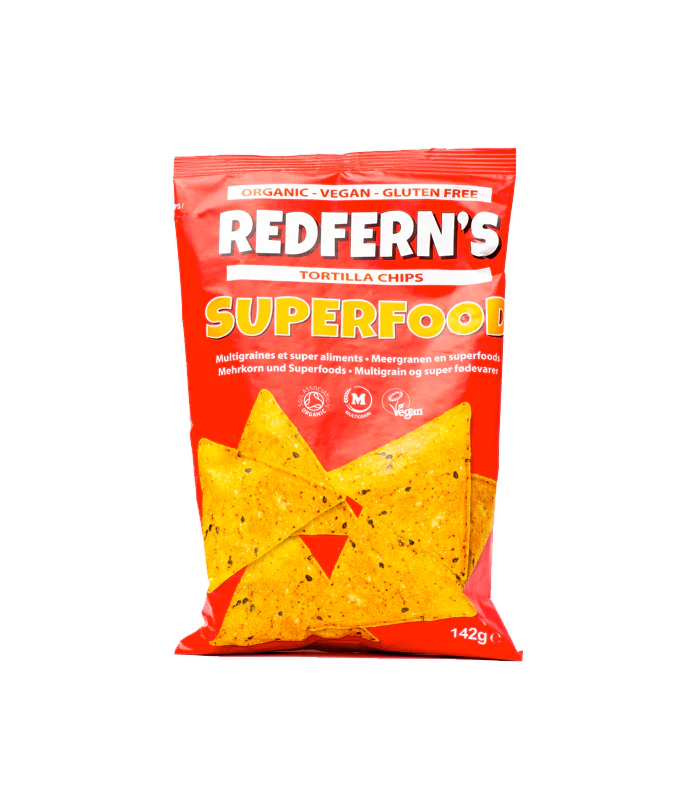
Redferns
Organic Ancient Grain tortilla chips.
What is organic food? Organic vs conventional farming
“Pre-1945 all food was organic. This was what we all ate and it was perfectly normal. But, ‘big food’ has done a really good job of telling us that the food that they’re producing is for everyone and organic food is for the elite,” explains Shane Holland, executive chair of Slow Food in the UK, a campaigning organisation that wants to flip the system so that food that’s produced as naturally as possible becomes the default.
‘Big food’ is what we now call ‘conventional food’. It’s popular because it’s cheap.
But, have you ever asked yourself what you’re really eating?
Conventional farming: what are we really eating?
Conventional farming is, essentially, chemical farming – it uses herbicides and pesticides made from fossil fuels. These help some plants to grow faster and kill others.
Their use has changed the landscape completely. They have allowed farmers to create huge farms filled with the same crop, with little diversity and less and less biodiversity.
Admittedly, this sounds great for efficiency and for our drive to ‘feed the world’.
The problem is, for a long time we didn’t realise it was only ever a temporary solution.
This is because these chemicals have been slowly killing the soil and – surprise, surprise – we need healthy soil to grow healthy crops.
There are studies being conducted into the nutritional value of organic food compared with conventional. The most well known work in this area is arguably a Newcastle University study that proves both organic milk and meat contain around 50% more beneficial omega-3 fatty acids than conventionally produced products. But, this dates back to 2016, now.
“It’s extremely difficult to link diet to health because there are so many different factors involved, including how much you exercise, how polluted the air is where you live, if you smoke etc…,” says Riverford CEO, Rob Haward.
“As a father of three children, for me it’s common sense. Do you want to feed your family food produced with regular applications of toxic chemicals or food that is grown naturally, in harmony with nature? Instinctively, for me, the latter is better.”
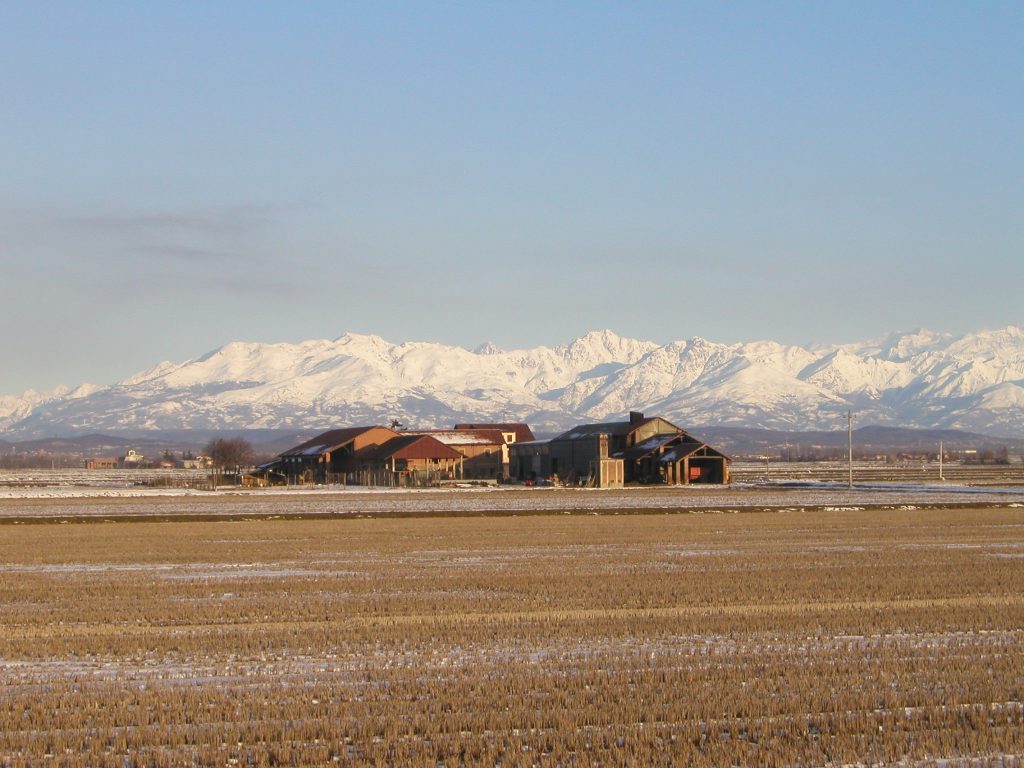
Conventional farming: can it really feed the world?
Another impact is that because the soil is now so depleted, farmers are finding it harder and harder to grow food without more and more chemicals. In fact, we are on course for 90% soil erosion by 2050.
In summer fields are not as resistant to drought because the soil doesn’t hold enough moisture to make up for the loss of rain and in winter fields are flooding more regularly, for the same reason – they’re not able to absorb it as they once did.
Our drive to “feed the world” with these huge monoculture farms has led to an unbalanced food system where there is a high amount of food waste in some countries and lack of food in others. Roughly one-third of food produced for human consumption is lost or wasted globally, while world hunger is on the rise, affecting nearly 10% percent of people globally.
The problem is we’ve somehow come to call this chemical style of farming ‘conventional’ farming and therefore accept it as the norm. Organic farming, which is how we’ve been farming for thousands of years, has somehow become the outlier.
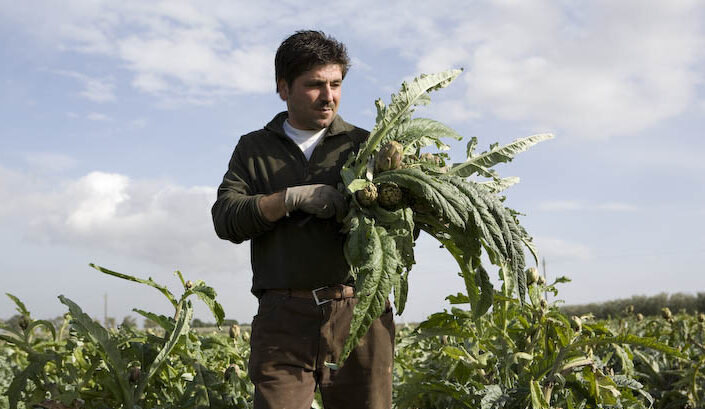
What’s the problem with organic? ‘Organic is not for me’
This story goes hand-in-hand with another criticism that the organic movement faces – that it’s ‘acting as nanny state by telling people what to eat’, according to Sustainable Food Trust’s new Feeding Britain report.
The European Commission has set a target of at least 25% of the EU’s agricultural land to be organic farming by 2030, as part of the Green Deal’s Farm to Fork strategy. Apparently, this is something the British public will simply not stand for.
But, by not standing for this, we are instead standing for less nutritious food proven to be detrimental to the environment. That doesn’t exactly incite national pride, does it?
And yet the story you hear people saying time and time again is: ‘Organic is not for me’.
‘There’s a notion that organic is for white, middle-class people and people with money,’ said pretty much everyone I interviewed for this article.
Supermarkets in the UK don’t help with this stereotype.
“People have a total misconception of what it means to create a product organically and what that system is,” says Abby Allen from Piper’s Farm, a food delivery service that works with small, family farms.
“The organic brands in the supermarket tend to have fancy logos and expensive packaging. So, a consumer is seeing a premium product and telling themselves ‘it’s fancy and not for me’ without understanding what it really means.”
This isn’t the case across mainland Europe.
“In the UK food is often considered a luxury and some people self-exclude,” explains Holland.
“When I talk to my colleagues in Italy, where the Slow Food movement was founded, they can’t understand why I’m working on food inclusion. This is because rich or poor, everyone in Italy believes they’re entitled to good food.”
It’s a point of view that makes me recall a conversation I had with Scottish baker Rosie Gray about dignity in food. Her position was very clear: “There is no dignity in someone being told if you can’t afford food you can eat crap. It’s rude.”
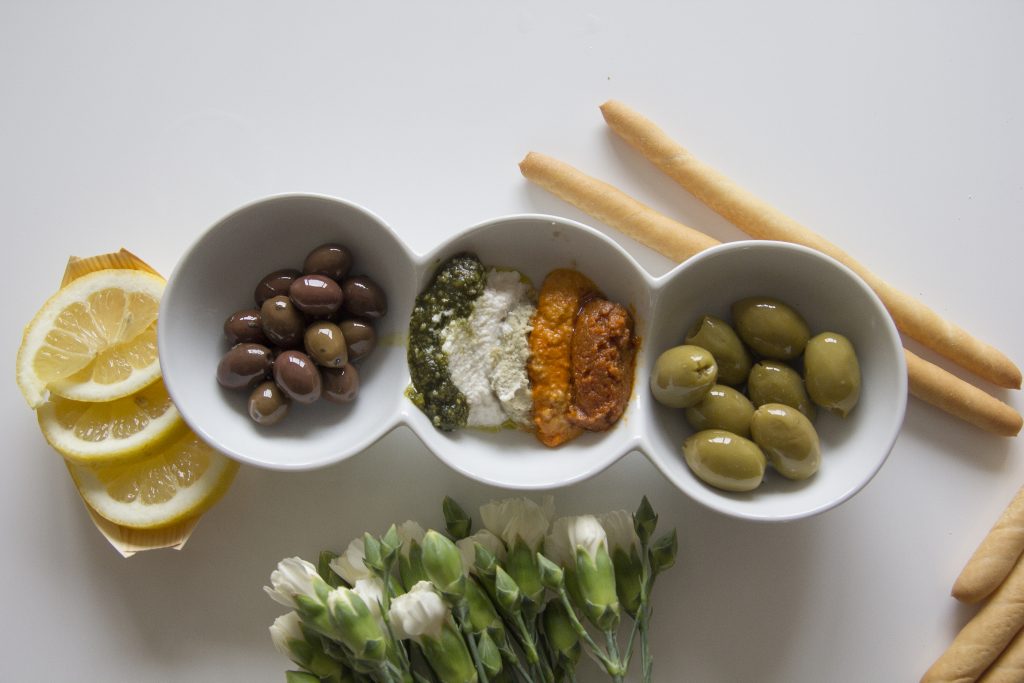
What’s the problem with organic? ‘Why is Organic food more expensive?’
“Why is organic food more expensive?”, is an all-too-familiar question that’s linked to this mindset.
Cost is a huge issue that becomes even more prominent in the face of a cost of living crisis.
“If one thing is holding back even higher demand it’s the price, which remains the primary reason cited by consumers who don’t buy organic,” confirms the Soil Association’s supply chain development manager, Lee Holdstock.
But, have we stopped to consider the alternative to that? We also need to be asking how non-organic food is so cheap.
In the 1950s, we spent about half of our income on food, in the UK. Today we spend between 8-15%. The question has to be – how is that possible?
Why is non-organic food so cheap?
A few years ago The Sustainable Food Trust produced another brilliant report, The Hidden Cost of UK Food. The first major study of its kind, it revealed the UK food system generates hidden costs of over £116 billion each year. As consumers, we pay for our food three times: “First at the till (real or online), second through taxes that provide public support to certain (but not all) types of agriculture, and third to clean up, treat and mitigate the environmental and health costs.”
It concluded that essentially £1 at the till requires another £1 to mitigate the environmental and health-related costs, including diabetes, caused by harmful food production practices.
More recently founding director of the Sustainable Food Trust, Patrick Holden, maintains that the report was conservative in its predictions. He explains: “All costs continue to rise since publication. New research and studies put the hidden cost at three times the price you pay at the till, not double.”
A new paper from the Scientific Group of the UN Food Systems Summit, The True Cost and True Price of Food, published in 2021 reaches similar conclusions:
“Ensuring sustainable food systems entails ensuring that food systems provide affordable and healthy food to all people while respecting planetary and social boundaries. Current food systems are not sustainable. They generate substantial environmental, social and health costs while failing to provide affordable food to all”.
Why isn’t organic more popular?
So, what if we considered a different story?
What if the problem with organic is not that we can’t afford it, but we can’t afford not to have it?
What if the true story is not that people don’t want it?
If you ask people if they want food that’s free of pesticides, free of chemical fertilisers, food grown in a way that enhances the landscape – they overwhelmingly say “yes”.
“Survey after survey suggests that consumers want food grown in accordance with organic principles,” argues Holland.
So, why does organic food represent less than 2% of our food shop?
The problem is the artificial barriers that are put in place and the stories we are told around these.
“Supermarkets say: ‘if people wanted organic, we would supply it’. But, everything is weighted in the favour of non-organic. Consumers aren’t being given the choice – not really,” insists Allen.
As many who try to buy organic testify, it takes a lot of effort to find organic items in a supermarket, unless you live in an affluent area. Even when you can find organic, it often comes with a premium price tag (many in organic would argue this is an unnecessarily high price differentiation), which means you then have to be extra committed to putting that organic item in your basket.
If you cannot find organic food, you cannot buy organic food. If you’re on a budget, you cannot buy organic food.
The data the supermarkets are using to prove people don’t want organic is skewed before organic has even hit the (very few) shelves.
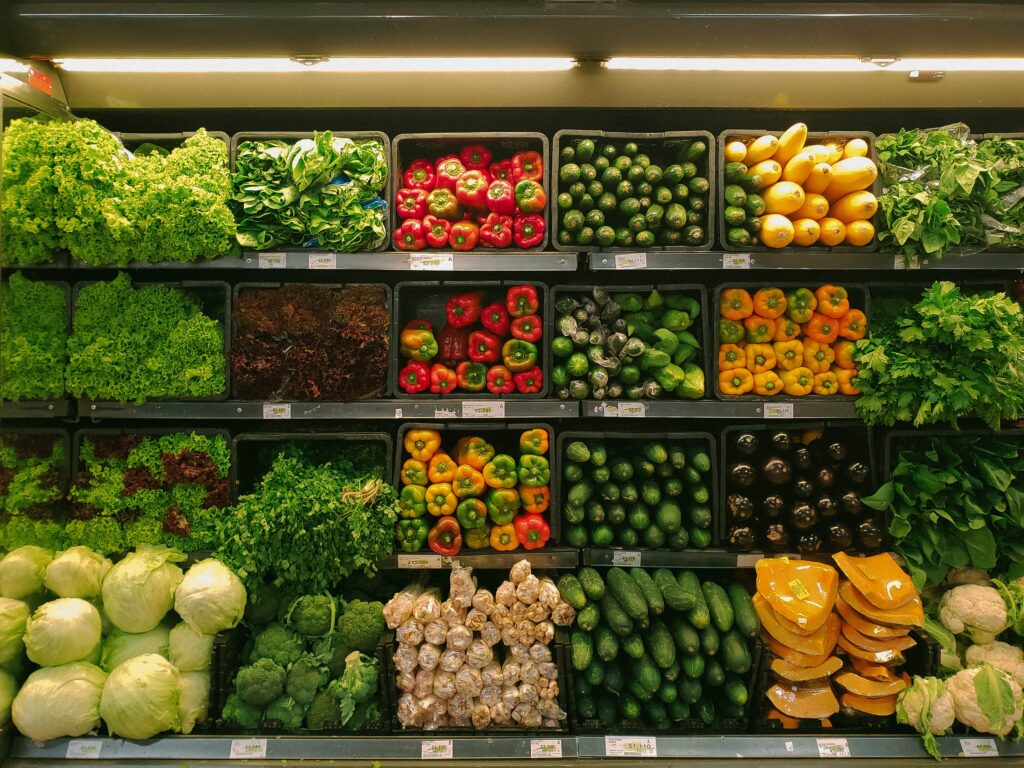
So, what’s the solution?
Just as with women’s football, organic isn’t a dirty word but dirty tactics are being played.
“England’s Wembley triumph didn’t happen out of thin air. There was a lot of structure and infrastructure, expert coaching, systems building, and basic enabling. That’s what brought the cup home, not just the individual and team performance”, says Redfern.
“That’s exactly what’s missing in the UK organic scene. The government has been totally missing in action and has even ignored the conclusions of the reviews, such as the Dasgupta review, it has commissioned itself.”
Just as we needed to give women’s football a real chance, we need the same opportunity for the organic sector in the UK.
Absolutely let the people decide if they want organic – but let’s give it a fair shot.
Let’s stop subsidising chemical agriculture so that organic food and non-organic food are competing on a more level playing field. Then let’s compare prices.
Let’s stock more organic food and drinks on supermarket shelves. Then let’s talk about demand.
As well as labelling food ‘organic’ let’s also start labelling food ‘chemically grown’ to see what people choose to buy.
And then we can see what people truly want to eat.
If we did this, what would you be rooting for?


